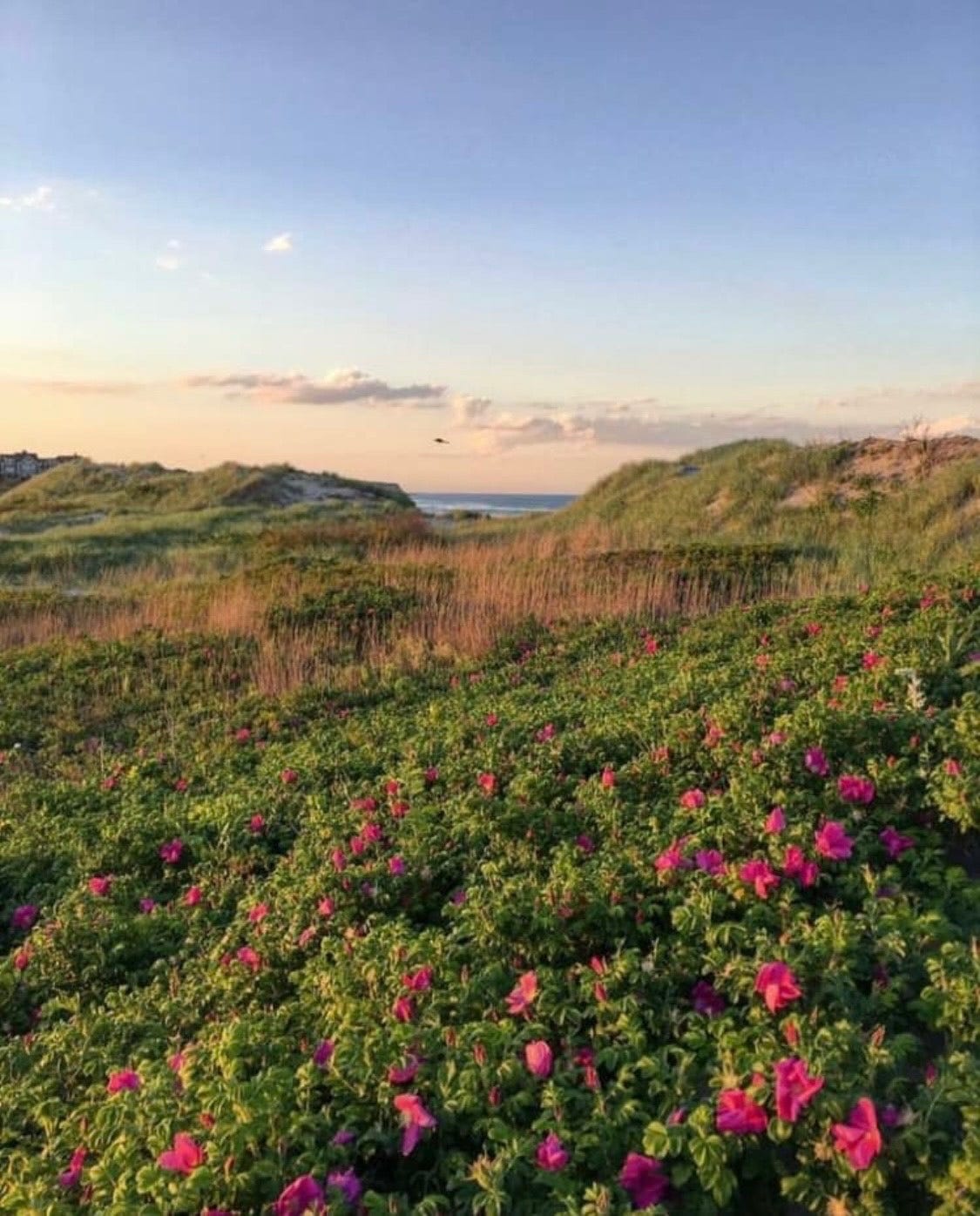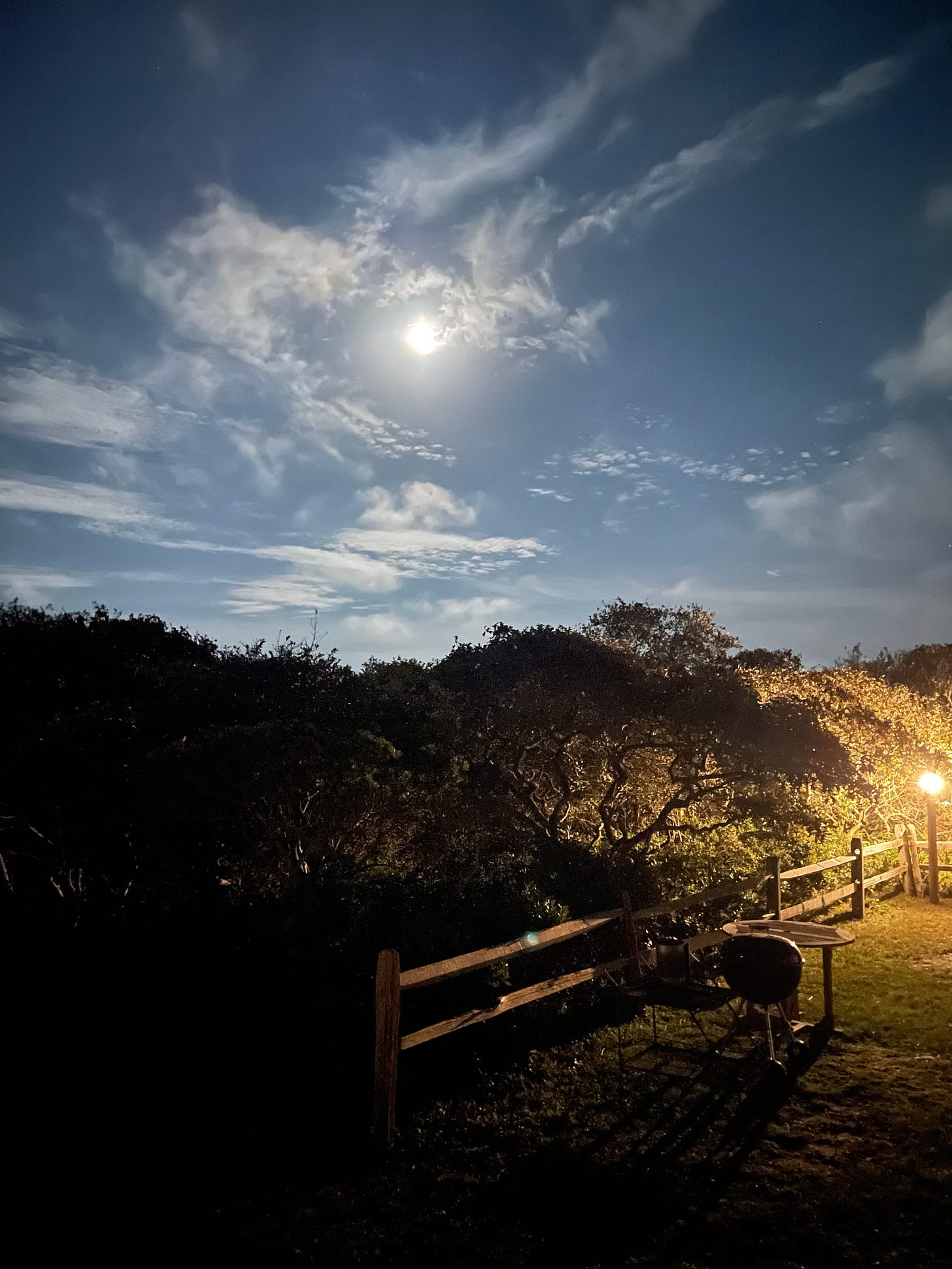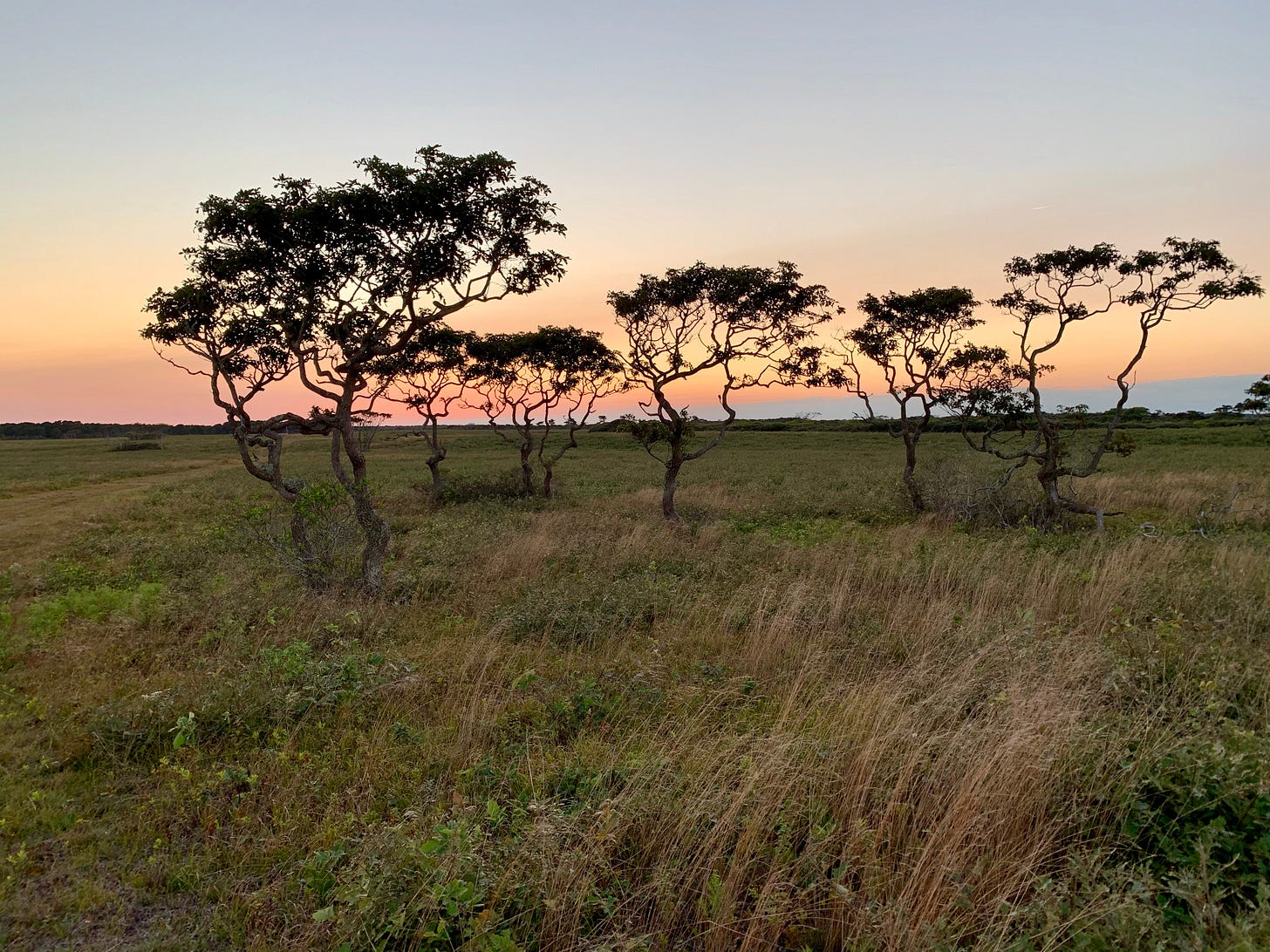It was another grace-filled gathering, beginning with a beloved prayer for the evening:
O Lord, support us all the day long, until the shadows lengthen, and the evening comes, and the busy world is hushed, and the fever of life is over, and our work is done. Then in thy mercy, grant us a safe lodging, and a holy rest, and peace at the last. Amen.The evening sometimes finds us feeling tense, after a stressful day. We can find ourselves running from one commitment to another throughout the day, while being peppered with disturbing news from around the world and in our own communities, so that when evening comes, we hardly feel peaceful. But some evenings, if we can remove ourselves to a place of solitude, leave our devices somewhere else, take some deep breaths, and enjoy a quiet scene in nature — outside our window at home or from a park bench — we might find ourselves settling into a place of inner stillness. But sometimes our hearts and minds are so full of cares, worries, or upsets, that finding stillness and peace is difficult. This called to mind a passage from George Eliot’s novel, Adam Bede, which Martin Laird quotes in his book, Into the Silent Land. In this passage, the Methodist preacher, Dinah, is preparing to leave the community to whom she has ministered for some time. She sits by her bedroom window, thinking of these beloved people and their struggles:
“And the pressure of this thought soon became too strong for her to enjoy the unresponding stillness of the moonlit fields. She closed her eyes, that she might feel more intensely the presence of a Love and Sympathy deeper and more tender than was breathed from the earth and sky. That was Dinah’s mode of praying in solitude. Simply to close her eyes, and to feel herself enclosed by the Divine Presence; then gradually her fears, yearning anxieties for others, melted away like ice-crystals in a warm ocean.” George Eliot, Adam Bede, (Harmondsworth, UK: Penguin, 1980), 202.
Dinah knows the salutary effect of resting her attention on nature, “the unresponding stillness of the moonlit fields.” But in this case, she is beset by unsettled feelings, fear, and anxieties for people she loves, so she closes her eyes and finds again within herself “the presence of a Love and Sympathy deeper and more tender than was breathed from earth and sky.”
Dinah’s experience and way of praying in solitude is something many of us have experienced, as well - a sense of being embraced by a love, sympathy, and tenderness that is always within us, but that our restless minds usually keep us from realizing.
We then pondered the mysteriously moving experience of allowing our attention to rest gently on our breathing. Again, Martin Laird writes:
From early on, Christians have seen breath as a potent metaphor of divine presence and somehow a fertile divine-human delta. … Example after example bears witness to this tradition that uses breath as a metaphor of divine-human intimacy. But there is also a very practical aspect of this tradition: the use of one’s own breath as a way to experience this divine-human intimacy, as an aid to dispel the illusion of separation from God. (Into the Silent Land, p. 37)
Noting that the opposite of contemplation is not action but reaction, we then pondered some interesting insights from Thomas Merton, beginning with a line that Carrie Newcomer has appropriated in one of her songs, “Take more time, cover less ground.” And from Merton’s personal journals:
“There is a pervasive form of contemporary violence to which the idealist most easily succumbs: activism and overwork. The rush and pressure of modern life are a form, perhaps the most common form, of its innate violence. To allow oneself to be carried away by a multitude of conflicting concerns, to surrender to too many demands, to commit oneself to too many projects, to want to help everyone in everything, is to succumb to violence. The frenzy of our activism neutralizes our work for peace. It destroys our own inner capacity for peace. It destroys the fruitfulness of our own work, because it kills the root of inner wisdom which makes work fruitful.”
Thomas Merton, Conjectures of a Guilty BystanderAnd from Merton’s Thoughts in Solitude:
“There are times, then, when in order to keep ourselves in existence at all we simply have to sit back for a while and do nothing. And for a person who has let herself be drawn completely out of herself by her activity, nothing is more difficult than to sit still and rest, doing nothing at all. The very act of resting is the hardest and most courageous act this person can perform, and often it is quite beyond their power. We must first recover the possession of our own being before we can act wisely or taste any experience in its human reality.”
We joined in a session of Lectio Divina, using a portion of the psalm appointed for Daily Morning Prayer today:
Psalm 37:1-9 1 Do not fret yourself because of evildoers; * do not be jealous of those who do wrong. 2 For they shall soon wither like the grass,* and like the green grass fade away. 3 Put your trust in the Lord and do good; * dwell in the land and feed on its riches. 4 Take delight in the Lord, * and he shall give you your heart's desire. 5 Commit your way to the LORD and put your trust in him, * and he will bring it to pass. 6 He will make your righteousness as clear as the light * and your just dealing as the noonday. 7 Be still before the LORD * and wait patiently for him. 8 Do not fret yourself over the one who prospers, * the one who succeeds in evil schemes. 9 Refrain from anger, leave rage alone; * do not fret yourself; it leads only to evil.
And after “resting in God” together, allowing these promising words to embrace us, we concluded our time with a beloved poem by R.S. Thomas:
The Moor It was like a church to me. I entered it on soft foot, Breath held like a cap in the hand. It was quiet. What God was there made himself felt, Not listened to, in clean colours That brought a moistening of the eye, In movement of the wind over grass. There were no prayers said. But stillness Of the heart’s passions — that was praise Enough; and the mind’s cession Of its kingdom. I walked on, Simple and poor, while the air crumbled And broke on me generously as bread.
As always, our times together are sacred, a real blessing. Please feel free to invite friends to join us.



